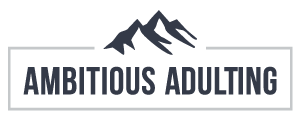Most people stumble onto this website to learn about investing.
If you’re new to investing, here are a few popular places to put your money to work:
- Fixed income (bonds)
- Equities (stocks, index funds, mutual funds)
- Real estate (REITS, residential, commercial)
- Commodities (gold, silver etc.)
- Collectibles (art, shoes, purses, antiques, etc.)
- Private businesses (check out Equivesto)
- (Yourself – education, professional development)
I wanted to learn more about investing in private businesses so I partnered with Equivesto to get these questions answered. This post is sponsored.
Founded in 2017, Equivesto is on a journey to reimagine how private company investment is done in Canada. Co-founders Alexander Morsink and Ryan Correia met as friends and roommates while attending Smith School of Business at Queen’s University. Before founding Equivesto, they both had several years of corporate experience, Alex at Scotiabank (the finance side of Equivesto) and Ryan in IT consulting (the tech side). Through their personal experiences, both became frustrated with the inability to invest themselves in exciting Canadian startups, as well as the difficulty experienced by Canadian founders in raising capital.
With limit numbers of Venture Capital firms and Angel Investors in Canada, and with limited diversity within those organizations, Ryan and Alex wanted to build something that would support diversity and accessibility for both investors and founders.
With the regulators finally making equity crowdfunding legal in Canada in 2016, both Alex and Ryan knew now was the time to act.
However, launching an equity crowdfunding platform is not as easy as setting up a website. In order to operate a platform, the company needs to become registered with the regulators as an Exempt Market Dealer (or Restricted Dealer). *Visit www.aretheyregistered.ca to learn more about EMDs and if Equivesto is registered* Alex and Ryan spent 2017-2019 building their technology and team, as well as submitting their application to be licensed as an EMD. Equivesto Canada Inc. finally received its EMD licence in the summer of 2020, with the platform launching to the public in September of this year.
There is risk associated with every kind of investing. Investing in private businesses is often considered higher risk.
Other high risk investments could also be real estate and individual stocks so it’s up to you to decide what level of risk you are comfortable with.
Investing in startups is risky and should only be made if you are comfortable risking your entire investment. This means, if you are investing in high risk options, be prepared to potentially lose money. Luckily, Equivesto works with you to ensure you are suitable for these types of investments.
Their licence requires a lot of security for investors, as well as all the work to ensure that they are suitable for the investments. Read more about that here: https://equivesto.com/privacy-confidentiality-and-security]
Dividends: A payment announced by the company to its eligible shareholders (investors). Dividends are a payment of a portion of the extra money the company has at the end of the year, usually made up of its profits. Companies will sometimes declare dividends as a percentage of that years profits, evenly divided by the number of shares.
Sale of the Company: One way investors might see returns on their investment is the sale of the company. Often, startups are looking to grow in size and become a potential target for purchase by a larger company in their space. If this were to happen, the acquiring company would make an offer to the startup to buy all of its outstanding shares, including those held by investors. By the time the startup is acquired, the hope is that the value has grown considerably, so the founders and investors would make money based on the difference between the price they paid for their shares, and the price they sold them at (capital gains).
Going Public (Listing on a Stock Market): Many companies hope to grow in size and eventually ‘go public’ by listing themselves on a stock exchange like the Toronto Stock Exchange (TSX). When a company goes public and lists itself on an exchange, it allows public investors to buy and sell its shares between themselves. This allows the original investors to also sell their shares publicly, any time they like. By the time a company goes public, the hope is that it will be much larger, and the price the shares trade at in the market will be much more than the original investor paid for them (capital gains).
Share Repurchase: Some companies hope to give their investors their money back by allowing share repurchases. These are special events when the company buys back some or all of its shares from its investors. Some repurchases are required whenever the company chooses, and some are voluntary and chosen by the investors. The value of the shares at the time of repurchase is set by the company, and can be equal to the original price paid (if the company paid dividends in between) or at a new higher price based on the company’s increased value.
When picking which companies to invest in, make sure you carefully review their goals around investor return and ensure that those align with your own investment time horizon goals. However, given the companies on Equivesto are small businesses, it is important to plan for at least no return on your investment for at least 5 years.
Q. Who can invest through Equivesto?

